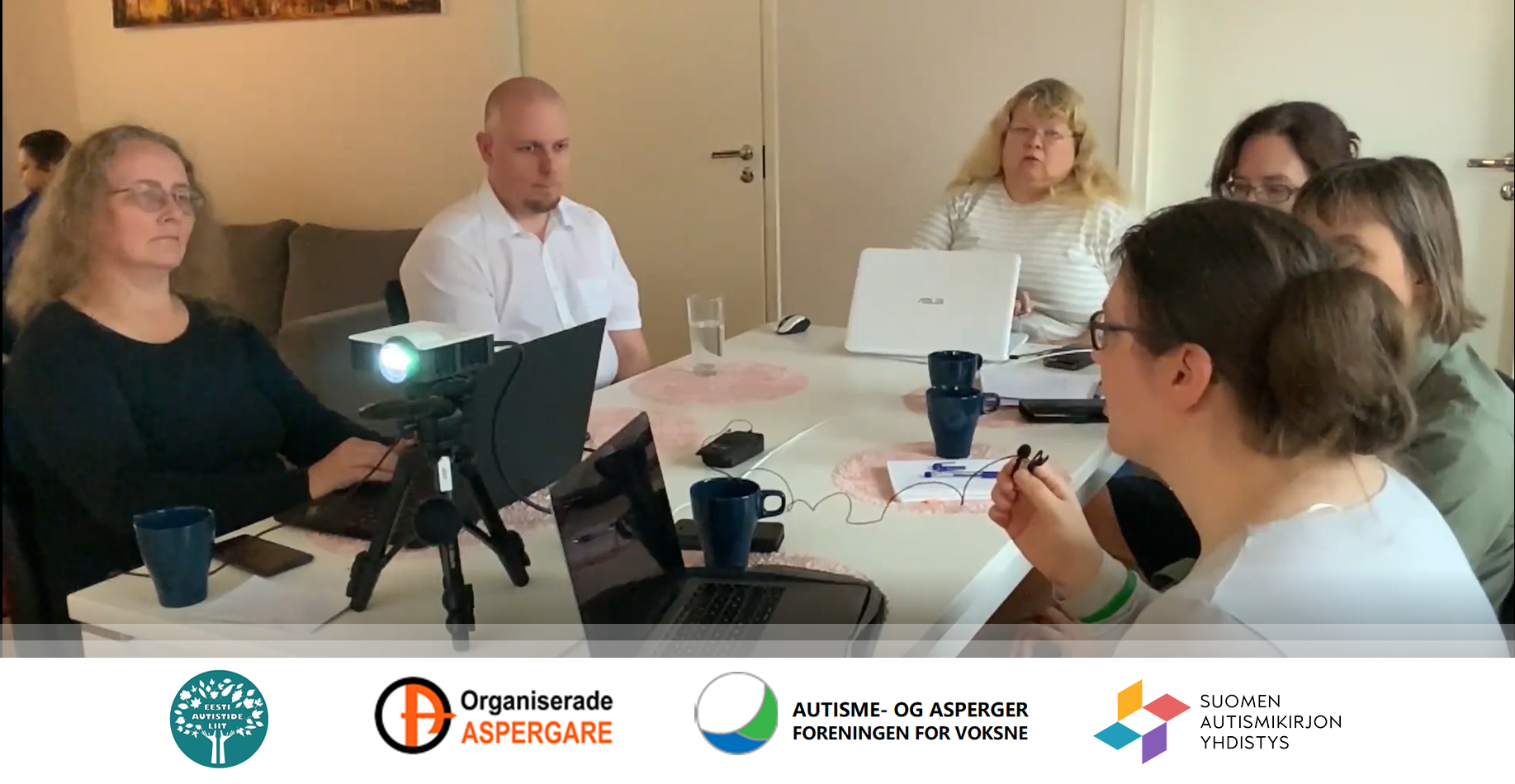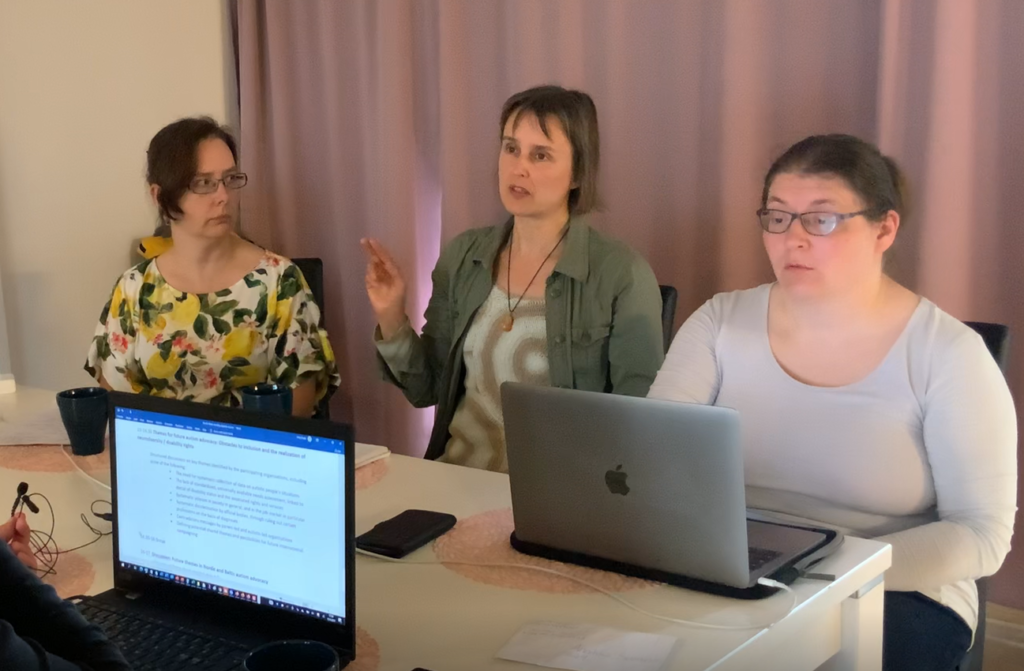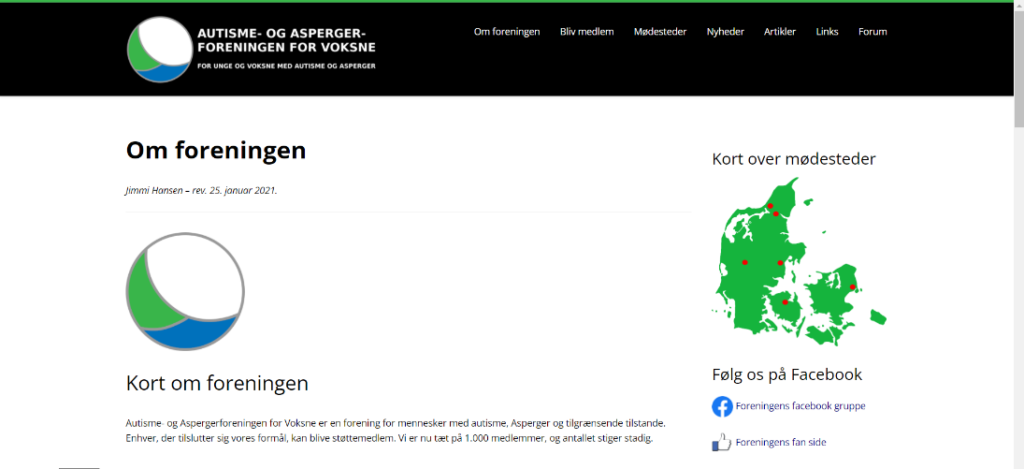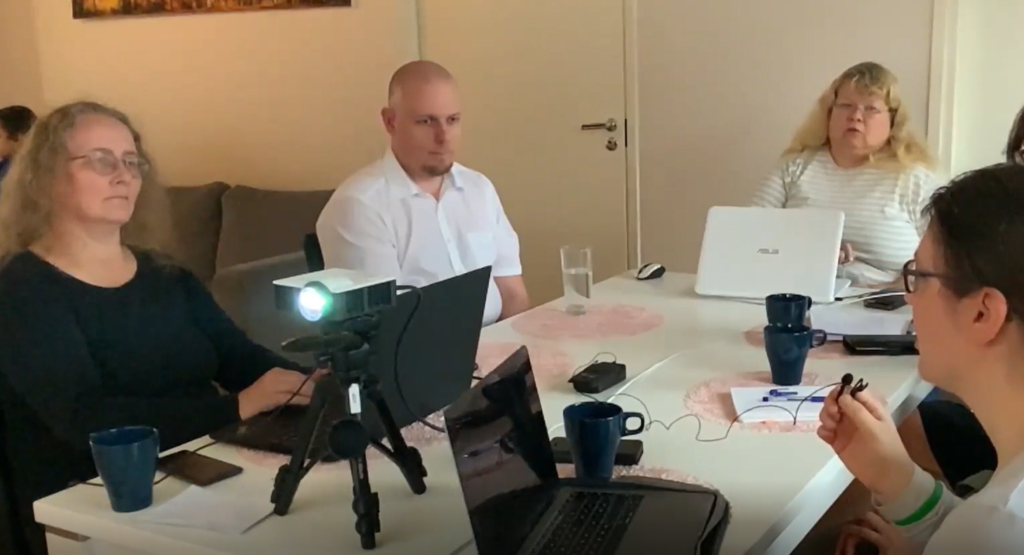Nordic-Baltic meeting of autistic people's associations
23.11.2021

Representatives of four associations from Finland, Sweden, Denmark and Estonia met on 11-12 September 2021 in Helsinki to share good practice, discuss advocacy themes and explore future collaboration. This meting, coordinated by ASY and supported by a grant from the Nordic Welfare Centre, was the first of its kind.
The event was an opportunity for the organisations to share their recently completed and ongoing projects, to explore new ideas on how to enhance cooperation between autistic-led organisations at Nordic-Baltic level, and to engage in discussion about current emerging issues in autistic-led advocacy.
The Estonian autistic-led organisation Eesti Autistide Liit (EAL) gave a presentation on the development of their 2020-25 Action Plan. EAL has identified key strategic themes: the need to grow, to explore funding opportunities, to improve visibility, to communicate goals clearly and to foster active and open involvement with stakeholders. A well-defined action plan is something many autistic-led organisations could benefit from, and the EAL themes could serve as a starting point for discussion in other countries.

The Danish organisation Autisme- og Aspergerforeningen for Volksne (AAFV) demonstrated their new, accessible website. For autistic-led organisations, developing easy to navigate websites could bring many benefits, both to autistic members and to wider stakeholders. They can play a vital role in raising an organisation’s public profile, while making peer meetings, events and other services accessible to the target groups.

The Finnish organisation Suomen Autismikirjon Yhdistys (ASY) reported on two of their recent projects: ‘stability in peer support’ (2018-20) and the ongoing project, ‘autistic people’s paths to public advocacy’ (2021-3). The first project can offer ideas on organising autistic-led peer support groups and other peer-led activity in a stable and sustainable way. The second project will seek to develop and document new approaches to including a broad range of autistic people in advocacy work, including those with considerable support needs.
The Swedish organisation Organiserade Aspergare (OA) made a presentation which focused on the development of their approach to autistic advocacy. Autistic-led organisations can benefit from presenting a consistent public image and identity grounded in the concept of neurodiversity.

Themes in current autism advocacy
Through the weekend, representatives discussed current themes related to autism-led advocacy. Attendees discussed the specific challenges of running autistic-led organisations. Discussing these issues can generate a shared sense of purpose amongst autistic-led organisations and potentially lead to the development of common positions on important issues facing autistic people.
A shared experience that emerged in the discussion was that the overall capacity of autistic-led organisations in the Nordic-Baltic region was constrained by reliance on volunteers with limited resources. In addition, the work of autistic-led organisations alongside parent-led organisations is sometimes complicated – although there are many shared goals and instances of positive cooperation.
View the short video compilation for a more detailed view of the range of ideas expressed in discussions.
Data, needs assessment and support services
Representatives discussed a range of related issues related to gathering data on autistic people and the variation in processes of needs assessment and access to services across the Nordic-Baltic region.
Autistic-led advocacy could benefit from being based on solid data and good knowledge of best practice in service provision. It was agreed that there is a general lack of statistical data on the social and human rights status of autistic people – how many diagnosed autistic people exist, their employment and income, their specific support needs and the types of support they are receiving, for example. The pros and cons of setting up national registers of autistic people were discussed.
Variations in support services at national level in Nordic-Baltic regions was highlighted. It was agreed that though the strengths and weaknesses of services systems varied between countries, in general there seemed to be bias within all of the social services towards visible physical disabilities and against the more hidden problems related to autism. This is linked to the need for universally accessible, expert needs assessment for many situations, from disability services to adjustments in the workplace. In addition, the ability to make complaints about official decisions was a crucial component, and practices in this also varied.
View the short video compilations below for a more detailed view of the range of ideas expressed in discussions.
Future goals
Over the course of the weekend, the representatives were able to discuss a range of issues of relevance to autistic-led organisations. Sharing good practice and developing common themes for advocacy could be beneficial to the growth and capacity-building of the participating organisations. It is hoped that this meeting can be a starting point for closer cooperation between autistic-led organisations in the Nordic-Baltic region. To this end, representatives briefly explored the potential for future joint work. An international seminar and speaker engagements via Zoom were discussed as possible future activities.